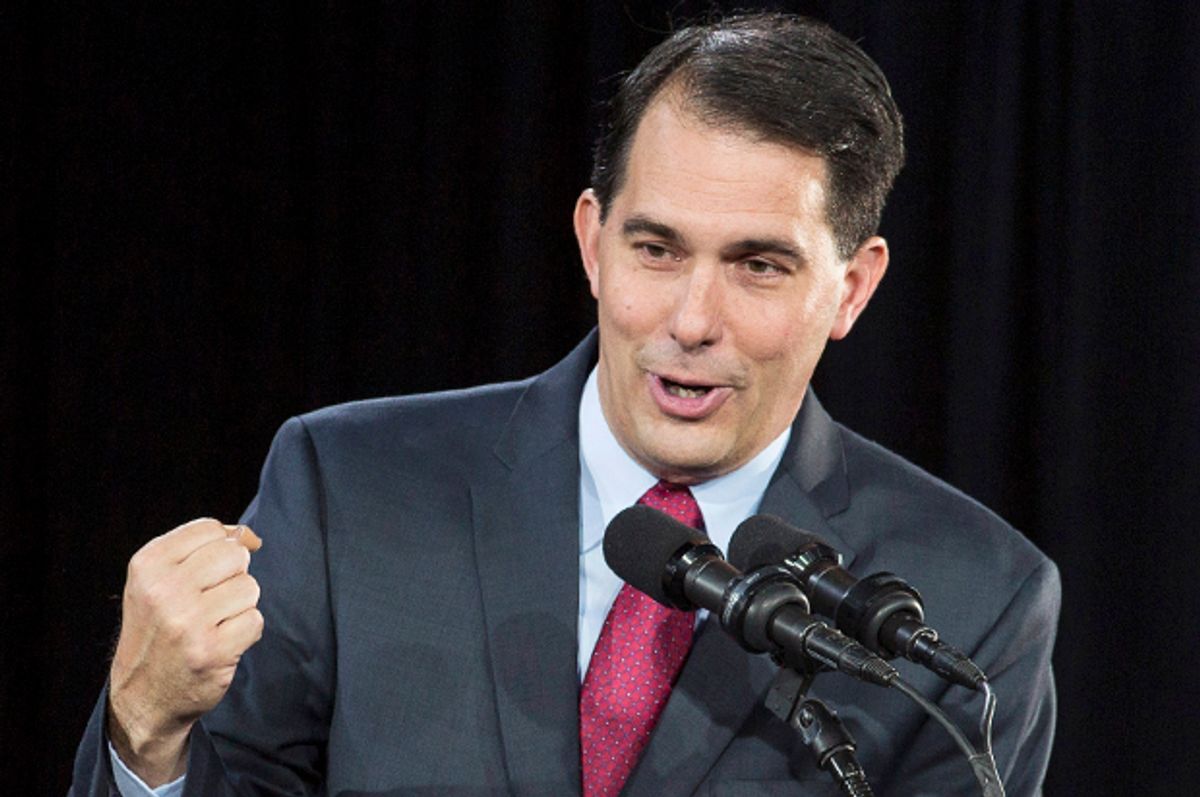In 2012, when the Supreme Court decided that the Affordable Care Act’s Medicaid expansion should be optional, it gave the nation’s poor a great gift. It renewed the possibility for poor people to avoid the trap of government-provided health coverage and truly live the American dream, but only if they were the lucky duckies who lived in states controlled by Republican opponents of Obamacare.
That was the vision laid out by Wisconsin Gov. Scott Walker on “Morning Joe” this past Friday. Walker, who refused to accept federal funds to cover new Medicaid enrollees in his own state, said that the better way for states to expand health coverage was to get people “into the workforce,” that way they can feel like true Americans and pay for their own insurance.
Here’s the relevant portion of Walker’s remarks:
WALKER: Why is more people on Medicaid a good thing? I’d rather find a way – particularly for able-bodied adults without children – I’d like to find a way to get them into the workforce, to transition them from government dependence to true independence. I think, ideologically, that’s a much better approach, not just as a conservative, but as an American. You have more people live the American dream if they’re not dependent on the government.
It’s pretty remarkable that an elected governor and potential Republican candidate for the presidency can get away with saying stuff like this. States that rejected the Medicaid expansion created what’s come to be known as the coverage gap. It affects people whose incomes were too low to be eligible for subsidies to purchase insurance through the federal exchanges, but too high to be eligible for traditional Medicaid. Across all the states that rejected expanded Medicaid there are almost 4 million people who fall into the coverage gap.
And guess what? Most of those people are already in the workforce. ThinkProgress pointed out that, according to the Kaiser Family Foundation, over half the people in the coverage gap have jobs, and two-thirds are in families in which one person works. Walker’s vision for expanding health coverage presumes that having a job is tantamount to having access to health coverage. That’s not at all the case; the Medicaid expansion was specifically designed to help people who do not benefit from employer-provided health insurance and are priced out of the insurance market (the so-called working poor). Walker’s preference for the uninsured “working poor” is for them to get the jobs they already have.
To his larger point, the idea that “government dependence” and the “American dream” are mutually exclusive is bonkers, especially when you’re talking about the provision of healthcare. The insinuation that the receipt of Medicaid benefits (or nutritional assistance, or cash transfers, or whatever) means that you’re not living up to the vaguely defined American ideal is, frankly, insulting. Not everyone is a Horatio Alger story come to life. There are real and daunting barriers to economic mobility and independence – like the absurdly high cost of medical care – that won’t evaporate simply because you refuse to recognize them in your American Exceptionalist fantasy.
But that’s the vision Scott Walker has for America’s less fortunate. It’s one in which the quiet, patriotic dignity of working yourself to death and still not being able to afford health coverage is preferable to the shame and stigma of having the government help pay for your otherwise crushing medical bills.

Shares